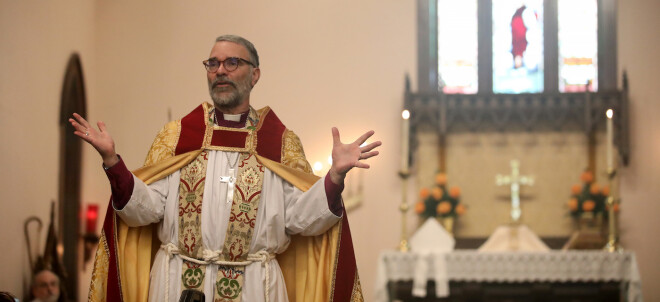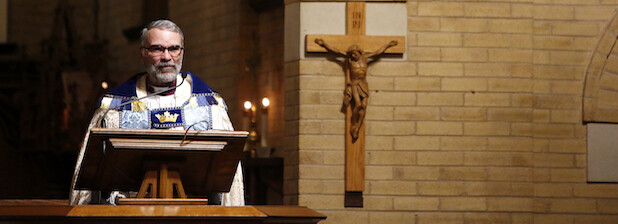We humans have the power to make tools, to speak, to plan for the future. In our own ways we are the most skilled of animals. We can ask questions about ourselves, about life and its purpose. We can speak of our own death. We can tell stories, including a conclusion of all things, and we can create things for the sake of their beauty alone. We can ask about, and then pursue, the truth even when it, as with the tragic Oedipus, does not conduce to our favor. We can imagine the divine. In so doing we experience wonder, dread, and hope. We can think of that which exceeds our understanding. And we can offer these generalizations even as we give space for the wide variations in these activities and ideas culturally. The human is the sort of creature who can pose the question of God.
This capacity to seek and ask what exceeds us will seem to some a built-in frustration. “All this I have tested by wisdom. I said ‘I will be wise,’ but it was far from me.” (Ecclesiastes 7:23) Better to live life on its own terms and let questioning go! Many today advocate just such an elimination of all that is not functional or material, as if that would remove our discontent. The price is concluding that life is ‘vanity,’ wind, ‘sound and fury signifying nothing’ (MacBeth). But it is harder than it might seem to ignore the ‘itch,’ the restlessness. It is part of our make-up: the human as question-asker asks why this is so too.
Now if it is God we are speaking of, then we are speaking of that which we cannot understand, the One greater than we are. If the answer could be reduced to human terms alone, then it would no longer be God we are speaking of. We are now feeling our way in a darkened room. What kind of creature has implanted the urge to do that? The Christian faith claims that this capacity, with its accompanying incapacity, is an indispensable clue to the truth about ourselves and the world.
It is important to realize what Christianity isn’t saying. It is claiming that people can live with or without God. But is not claiming that you can wrestle with the question of God or not, and it doesn’t really matter, whatever works for you, as if there were no consequence. We believe that to live only in the day-to- day truncates what you as a human are.
You might say that everyone is ‘religious’ insofar as they have some answer or other, around which we organize our lives (A theologian named Paul Tillich said something like this). But Christianity is not saying that all the answers to the ‘big question’ are fine, so long as you have one. There are people who say this (they might be called ‘pluralists’), but the Christian faith claims something more definite. Answers that replace something created for the Creator, which sub-in something smaller and knowable, are called ‘idolatry’ in the Bible. They are rejected because at the end of the day we are thereby really worshipping ourselves.
What to Read: CS Lewis, Surprised by Joy: Before I knew what I desired, the desire itself was gone, the whole glimpse... withdrawn, the world turned commonplace again, or only stirred by a longing for the longing that had just ceased... In a sense the central story of my life is about nothing else... The quality common to the three experiences... is that of an unsatisfied desire which is itself more desirable than any other satisfaction. I call it Joy, which is here a technical term and must be sharply distinguished both from Happiness and Pleasure.
Venerable Bede, Ecclesiastical History, II.13: The present life of man, O king, seems to me, in comparison of that time which is unknown to us, like to the swift flight of a sparrow through the room wherein you sit at supper in winter, with your commanders and ministers, and a good fire in the midst, whilst the storms of rain and snow prevail abroad; the sparrow, I say, flying in at one door, and immediately out at another, whilst he is within, is safe from the wintry storm; but after a short space of fair weather, he immediately vanishes out of your sight, into the dark winter from which he had emerged. So this life of man appears for a short space, but of what went before, or what is to follow, we are utterly ignorant. If, therefore, this new doctrine contains something more certain, it seems justly to deserve to be followed.
Phiilippians 3:18 For, as I have often told you before and now tell you again even with tears, many live as enemies of the cross of Christ. 19 Their destiny is destruction, their god is their stomach,and their glory is in their shame. Their mind is set on earthly things. 20 But our citizenship is in heaven. And we eagerly await a Savior from there, the Lord Jesus Christ, 21 who, by the power that enables him to bring everything under his control, will transform our lowly bodies so that they will be like his glorious body.





